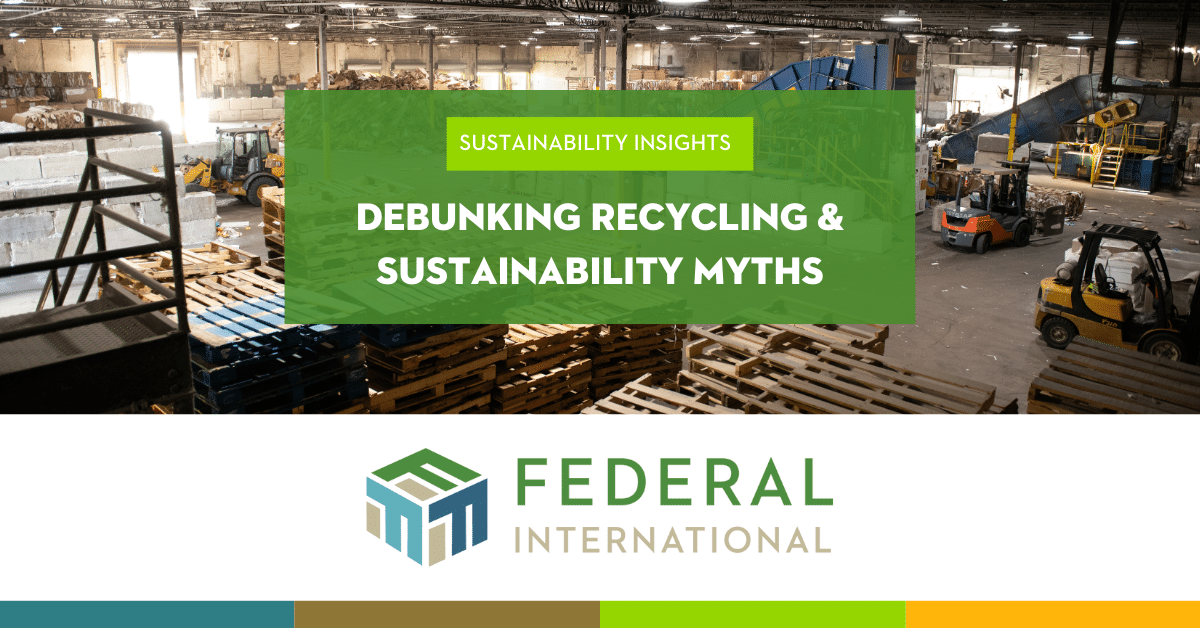Responsible production and consumption, known as Sustainable Development Goal (SDG) #12, is a crucial part of the United Nations’ plan to achieve all 17 SDGs by the year 2030. SDG #12 promotes sustainable production and consumption patterns worldwide, with positive impacts such as waste reduction, efficient resource usage and more sustainable business practices.
Why is responsible consumption and production important?
SDG #12 is important because it addresses many environmental issues, including overconsumption of natural resources, like coal, oil and water, and the impact of environmental pollution. Achieving this goal will create a healthier environment, improved quality of life, and long-term economic stability. The goal also will mitigate climate change impacts and foster a more sustainable future for all.
Overconsumption
Consumer demand and purchasing decisions directly impact production levels of goods and services. This creates a cycle of overconsumption, which leads to increased resource depletion, energy usage and waste generation.
To help curb overconsumption and resource depletion, producers must consider recyclability as part of their product design and source inputs that have end-of-life qualities.
Environmental Pollution
Manufacturing and production facilities are responsible for a significant portion of environmental pollution, including emissions, energy usage and chemicals that negatively affect water, air and soil quality. The potential consequences include loss of biodiversity, endangered wildlife and natural habitats, and human health risks.
As an example, stormwater runoff around facilities is an important aspect of chemical management. The overflow of water can bring waste and other plant pollutants such as cleaning materials, microplastics and dust particles into nearby ecosystems, thus posing contamination risks to drinking water with toxins, hazardous waste and waterborne diseases.
Who is responsible for achieving SDG #12 (responsible consumption and production)?
Responsible production and consumption practices are the responsibility of governments, businesses and industry leaders, and consumers.
- Governments have the power to pass regulations requiring sustainable production and product design. They can also offer incentives to businesses that pursue more sustainable manufacturing methods.
- Companies must commit to manufacturing environmentally friendly products that can be repurposed through recycling. They can also limit their own production waste by finding ways to create a closed loop recycling model where they reuse the byproduct(s) of their process.
- Consumers can use their purchasing power to choose sustainable products, while also deciding to live more minimally to avoid overconsuming resources.
How is Federal International putting SDG #12 into action?
After signing the UN Global Compact, Federal International participated in the SDG Ambition Accelerator program to create a 3-6-9-month plan to implement sustainable business operations that align with the goal our business chose: SDG #12. Our plans for responsible production and sustainable consumption put our One Federal value of ‘Environment’ into action by limiting the environmental footprint of our company and that of our customers.
The Federal family of business units identified two actionable plans to achieve SDG #12: 100% sustainable inputs and stormwater runoff management. By achieving both goals, Federal International will help keep waste out of landfills and further promote environmental sustainability with our responsible consumption and production solutions.
Why should we want 100% sustainable inputs?
In 2020, Statistica reported that more than 26 million US tons of foam are produced a year and can take up about 25-30% of space in the world’s landfills. Foam is made of long-lasting polymers and does not easily decompose, leading to negative environmental impacts.
As prominent leaders within the foam industry, Federal Eco Foam (FEF) and Federal Foam Technologies (FFT) help keep foam out of landfills. FEF and FFT are focusing their procurement efforts to source foam products made with sustainable inputs to help prolong the foam’s lifecycle, and even graduate the foam to a second, possibly third, generation. By providing eco-friendly, end-of-life solutions, we meet growing customer and consumer demands for more sustainable materials that support a circular economy.
Why should we improve stormwater runoff management?
Federal Recycling & Waste Solutions (FR) not only focuses on recycling customers’ waste to limit consumer environmental footprint but also on ways the company itself can be an environmental steward. This includes responsible production and protecting the environment surrounding its recycling plants.
By managing stormwater runoff, FR aims to help mitigate the negative impacts of erosion and possible flooding while protecting local wildlife. This also helps customers maintain a sustainable supply chain by minimizing the environmental impacts of their recycling and waste management processes. Implementing effective stormwater management is crucial for preserving water quality, maintaining ecological balance and ensuring long-term sustainable operations.
How to achieve responsible production and consumption
Achieving responsible production and consumption is key to building a sustainable future. Individuals, businesses, and governments must encourage sustainable practices, promote efficient resources and reduce waste. Collective action is imperative for attaining this goal — creating a world in which economic growth goes hand-in-hand with environmental responsibility and sustainable practices.
Federal International continues to be at the forefront of green initiatives. With our unique insights across all industries, we can provide businesses with custom recycling solutions for their specific business needs and provide eco-friendly, end-of-life foam and component materials that extend the lifecycle of products, keeping them out of landfills.
Together, we can make responsible production and consumption a reality for future generations and impact our tomorrows today. Discover how your business can contribute to a greener future with our initiatives — contact us today.






